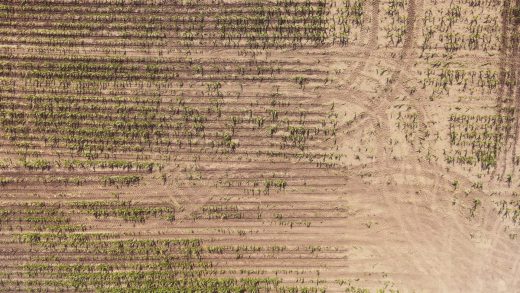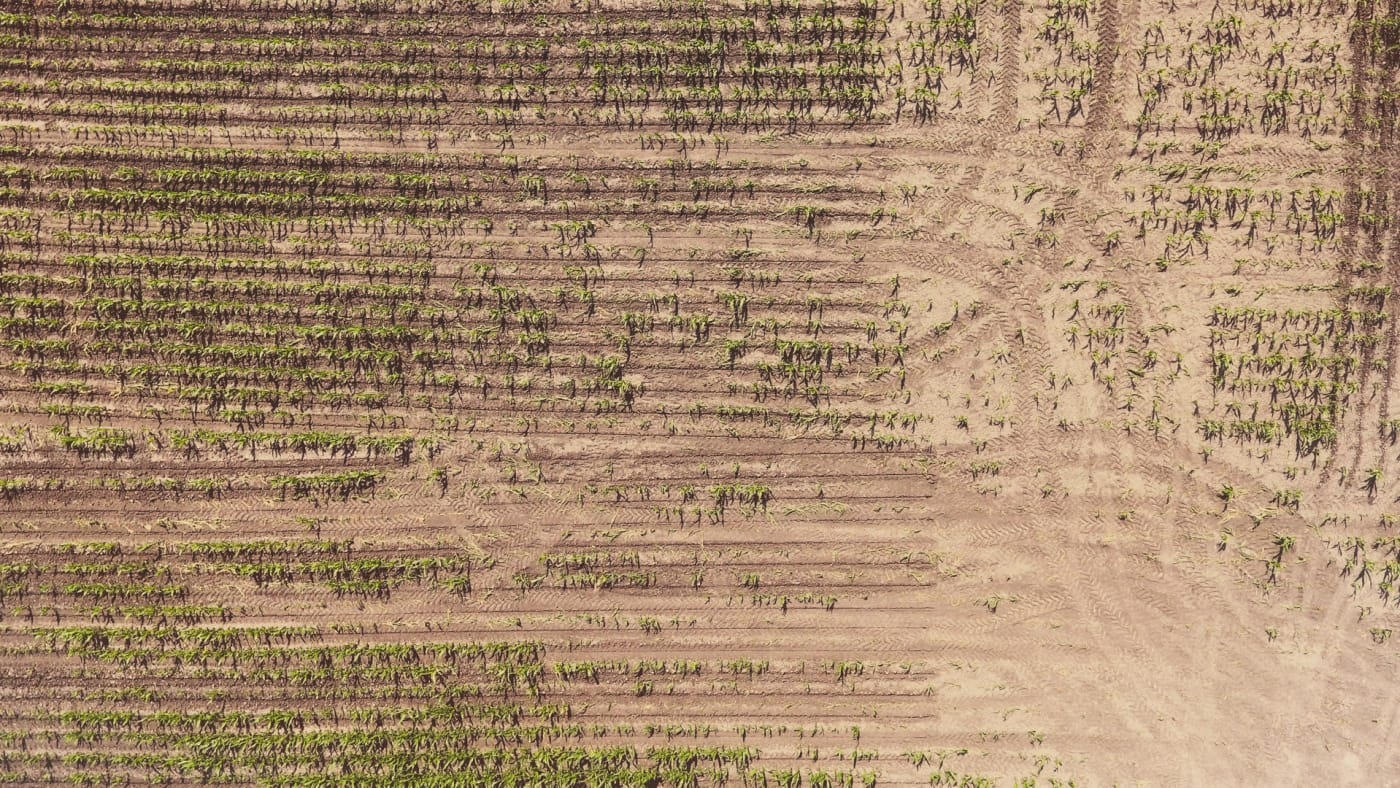Lawsuit: Blame Monsanto for widespread Kansas crop losses
A new lawsuit alleges that Monsanto knew that a potent herbicide would harm crops that weren’t resistant, but sold a product based on it anyway. As a result, potentially thousands of acres of crops that weren’t resistant to the herbicide died, the lawsuit says. The legal complaint was filed by 4-R Farms, which lost 200 acres of soybeans, the Topeka Capital-Journal reports.
The herbicide, dicamba, has been used in the United States since the late 1960s, but only since 2017 in so-called over-the-top applications where it is sprayed on fields after the soybeans are already growing. It is the basis of Monsanto’s XtendiMax herbicide, which is meant to help farmers control weeds, including pigweed. It’s designed to be used on genetically modified soybean and cotton crops created to be tolerant to weed killers. The herbicide can reportedly drift, though, landing on nearby fields and destroying non-GMO crops.
Monsanto isn’t the only company that sells dicamba-based products. The Kansas lawsuit also names chemical company BASF as a co-defendant. BASF is facing its own mounting pile of lawsuits over dicamba.
According to the EPA, dicamba damaged more than 3.6 million acres of soybean crops in 2017, or about 4% of all soybeans planted in the United States. Research compiled by a University of Missouri professor says dicamba’s drift can also affect tomatoes, watermelon, cantaloupe, organic vegetables, and residential gardens. Some 2,708 complaints had been reported to state agriculture officials about dicamba crop damage as of mid-October 2017.
The petition was filed on Thursday and Monsanto says it has not seen it yet.
“We have not yet been served but will review the lawsuit in due course,” Scott Partridge, vice president for Monsanto, said in a statement to Fast Company. “Our customers tell us they are experiencing outstanding weed control and achieving on-target applications across 50 million acres of Roundup Ready 2 Xtend soybeans and cotton with XtendFlex Technology. Growers need this technology to fight tough-to-manage weeds on their fields.”
The Topeka Capital-Journal reports that Monsanto already faces a class action lawsuit in eastern Missouri over damage from the hard-to-control chemical, and Kansas may be next.
(10)



